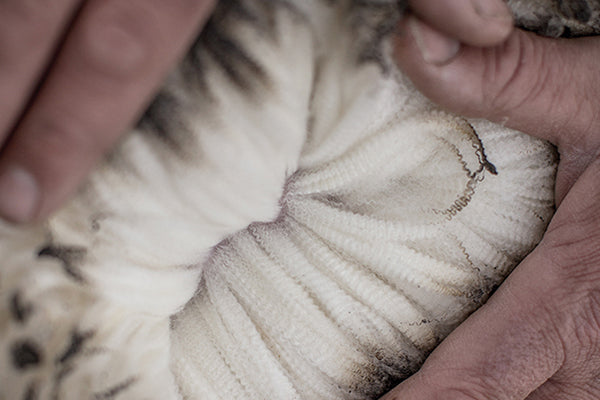What makes eco-friendly clothing eco and what are the brands to look out for?

Eco-friendly
Definition: not harmful to the environment
Eco-friendly clothing is clothing made from either natural fibres or recycled materials
Natural Fibres
Natural fibres come from trees or plants that can be grown or harvested over and over again, or from animals that are shorn every year. The manufacturing of these fibres is more eco-friendly than the production of synthetic fibres, and they naturally decompose so they create less buildup in landfills
Organic, natural fibres are made without the use of pesticides, fertilisers & chemicals so they are kinder to the skin and the planet. They are also much stronger than synthetic fibres so will last much longer and helps to reduce the amount of clothing that ends up on landfill
Most natural fibres are heavily regulated to ensure the consumer is receiving what they should be
Some examples of natural fibres:

Bamboo
- Grows naturally without the use of pesticides or fertilizers
- Regenerates naturally and is biodegradable
- Only needs rain water to grow
- Grows faster than any hardwood trees
- Grows on soil that is not suitable to grow other crops

Organic Cotton
- Grown without the use of persticides or fertilizers
- Builds strong soil through crop rotation
- Heavily regulated that by independent companies that verify the entire supply chain is organic and complies to ecological and social criteria

Merino Wool
- 100% natural
- Biodegradable
- Ethically sourced
- Renewable - sheep are shorn every year
- Animal friendly - The sheep are only shorn in the Summer to ensure comfort and farmers follow animal welfare standards

Eucalyptus Tencel
- Cut rather than uprooted so the trees grow back quickly
- Trees require little water to grow
- 99% of the chemical, water and waste in the manufacturing process is reused in the closed loop system

Modal
- Multiply by rejuvenation
- No chemicals needed
- Lowest consumption of fossil energy, CO2 neutral and meets the highest environmental standards
- 80-90% of water used in the manufacturing process is immediately returned to surface waters without contamination

Bambor
- Made from a blend of organic cotton, bamboo and a small amount of elastane for stretch
- GOTs certified and have the Oeko Tex Standard
- Trademark fabric from the brand Asquith
Recycled Materials
Clothing and products that are made from recycled materials reuse items that would otherwise end up in landfill or in our oceans. Although not always originally natural fibres, recycled products are eco friendly as they stop waste, examples include t-shirts made from recycled plastic bottles, bags made from drinks can ringpulls, and bracelets made from recycled flip flops!
Plastic Alternatives
Eco friendly brands

Asquith
Their active-wear is made with the best quality bamboo and organic cotton and is GOTS certified and certified by Oeko Tex

Aura Que
Purses & tote bags handmade by artisans in Nepal and Vietnam. Made from cotton by a fairtrade collective and supported by UNICEF

Bozo Tribe
Gorgeous bracelets made by artisans in Mali. The Bozo tribe collect flipflops from the river, clean them & melt into bracelets

Ecoffee Cups
Funky, re-useable travel cups made from bamboo. BPA and Phthalate free, light, sturdy and have a 'no-drip' lid

Egos
Slippers made from felted wool and handmade by artisans in Nepal. Dyed using eco-friendly colouring

Én Gry & Sif
Felted wool flowers made from felted wool and handmade by Nepalese artisans. Dyed using eco-friendly colouring

Howies
High quality clothing for sports, the outdoors and everyday wear made from organic cotton or modal. GOTS certified

Icebreaker
Clothing made from merino wool. Icebreaker's manufacturing process is fully traceable & they have in depth environmental programmes

LNSquared
T-shirts made from either bamboo, organic cotton, or a blend of organic cotton and recycled plastic bottles and screenprinted using chemical free inks

Mons Royale
Clothing made from merino wool. ISO Rated and Oeko Tex certified. Mons Royale even have their own wool cleaning and combing plant that recycles and cleans its water using a purification system

Patagonia
Clothing made from organic cotton and recycled polyester. Patagonia's manufacturing process is traceable and they also donate at least 1% of all their sales to environmental groups worldwide

Purple Community Fund
Bags and purses made from drinks can ringpulls and curtain thread. The PCF teaches dumpsite communities in the Phillipines skills and they earn a sustainable wage for making the products

Smartwool
Socks made from merino wool. Smartool aim to protect the natural environment and they support many different conservation and environmental charities and groups

Snugs
Sheepskin slippers which are handmade in Portugal. The slippers are vege-tanned; only organic tannins are used in the tanning process and only chemical free dyes are used

Starlightz
Stunning star shaped lampshades which are handmade by artisans in India using over fifty tiny pieces of colourful tissue paper. Made from natural materials, TUV safety approved and fairly traded
When looking for eco-friendly clothing there are global standards and certifications used which may help influence your decision. These include GOTs certified, Oeko-Tex certified, the Organic Content Standard and the ISO rating. See more about the Eco friendly clothing accreditations HERE





